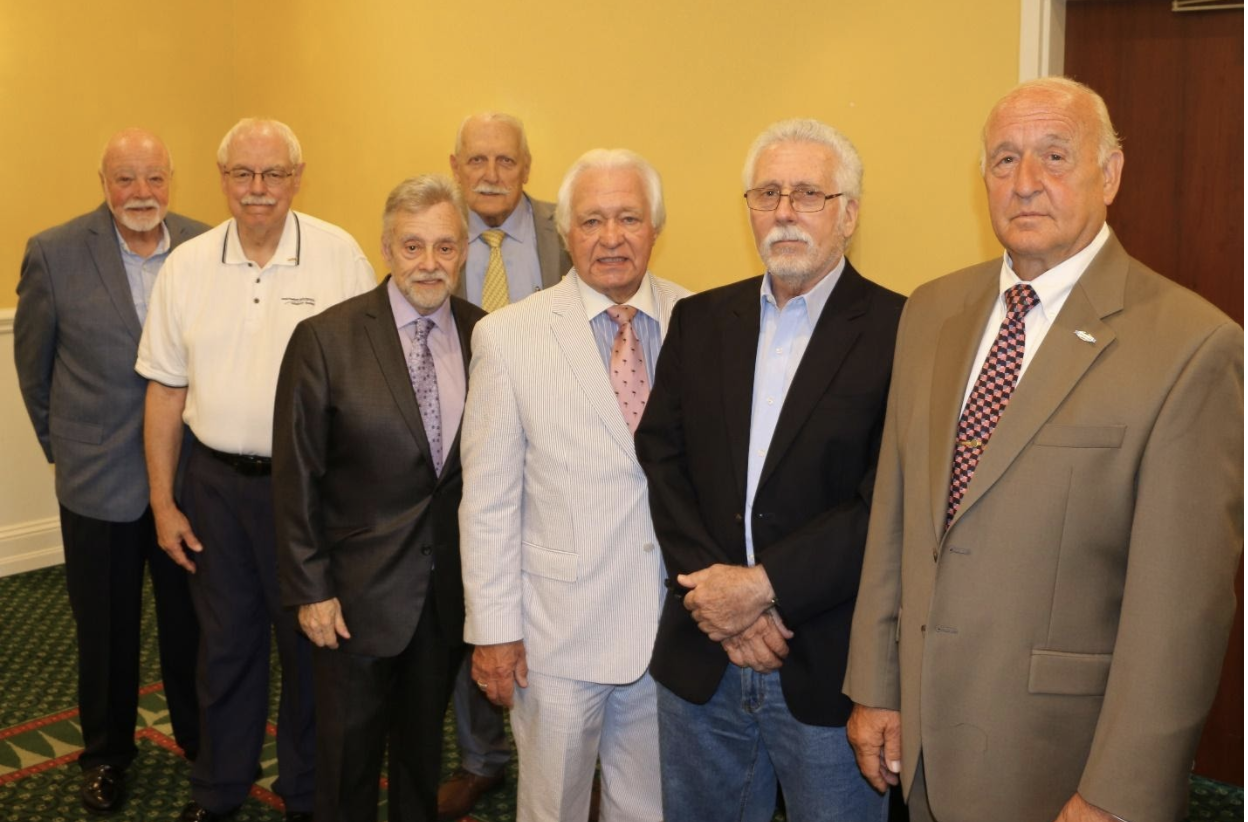
On July 12, Dick Dunne, Al Contessa and Roger Schaefer, former members of the Grumman Lunar Module Team, came to the LIMBA (Long Island Metro Business Action) meeting at the Courtyard by Marriott in Ronkonkoma to share their experiences of working on the Apollo 11 mission at its presentation, “50th Anniversary of the Moon Landing.”
Mr. Dunne, who served as Grumman’s public affairs spokesman during the Apollo mission, explained the beginning of the U.S. space program. One of the most important names was Werner von Braun, who was brought here from Germany to the United States at the conclusion of World War II to assist the U.S. in its space program.
In the early 1960s, President John F. Kennedy called for the establishment of a space program that would put a man on the moon. According to Mr. Dunne, there were three ways to reach the moon: go directly from the earth to the moon, rendezvous to the earth’s orbit or follow the lunar orbit. It was decided that the lunar orbit made the most sense, since it was more fuel-efficient and was the easiest way to reach the moon.
In 1963, Grumman signed a contract with NASA (National Aeronautical and Space Administration) to perform work on the Apollo missions. The company’s aerospace engineers worked on the lunar modules.
Mr. Contessa said he was “a 20-year-old kid” who worked at Grumman, then spent 13 weeks at the Houston Space Center fabricating blankets for the module. He had to make sure that the blankets were cut in such a way that they could fit over the module; in addition, they had to be as light as possible. At the meeting, he showed those in attendance a piece of the insulated blanket that covered the Apollo 11 module.
Mr. Contessa recalled that, when he was working in Houston, Neil Armstrong — one of the Apollo 11 astronauts — came down and told him and his co-workers that he wanted to land the module on the moon without having to turn off the engines. To do so, Mr. Contessa said, the workers had to install more insulation to prevent the module from burning up.
Mr. Schafer “fell into the job” as a simulation engineer. His job, he said, was to collect the data from the computers, which recorded the data on tape, and test the tapes. Female employees at the Massachusetts Institute of Technology strung beads on ropes in order to match what was on the tapes. He said this was done to make sure there were no anomalies in the programming.
What was amazing about the mission, Mr. Schaefer said, was that the module’s computer ran on a small amount of memory. He said a modern-day cell phone contains 1,000 times more memory than what the module had. “How we got to the moon was a miracle,” he said.
All three men said that everything for the mission had to go off without a hitch. For example, Mr. Contessa said the guillotine blades on the rocket had to cut all four cables connected to the module at the same time, while Mr. Schaefer said that the landing gears were constantly tested in Grumman’s hangar every day before each Apollo mission commenced.
Mr. Contessa said there is no reason why NASA cannot send astronauts to the moon again. Mr. Dunne agreed, but added the agency would be unable to do so. “The next time we go to the moon, it will be more difficult because of the bureaucracy,” Mr. Dunne said.
For more information, or for a list of upcoming events, call (631) 757-1698 or visit www.limba.net.




